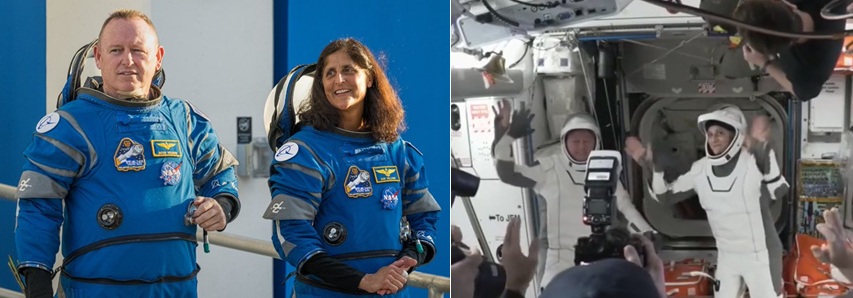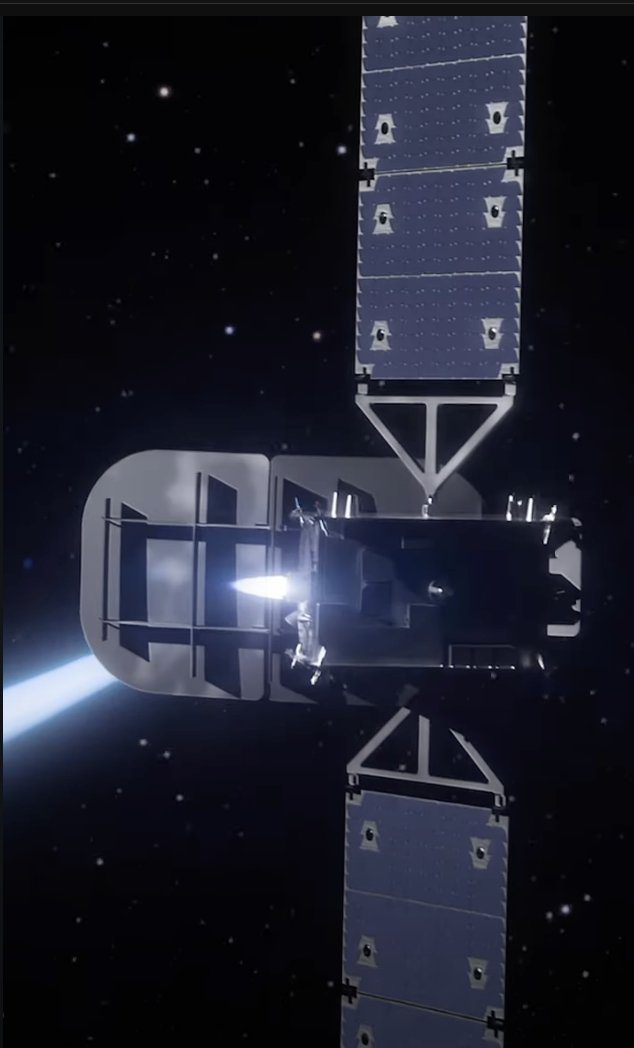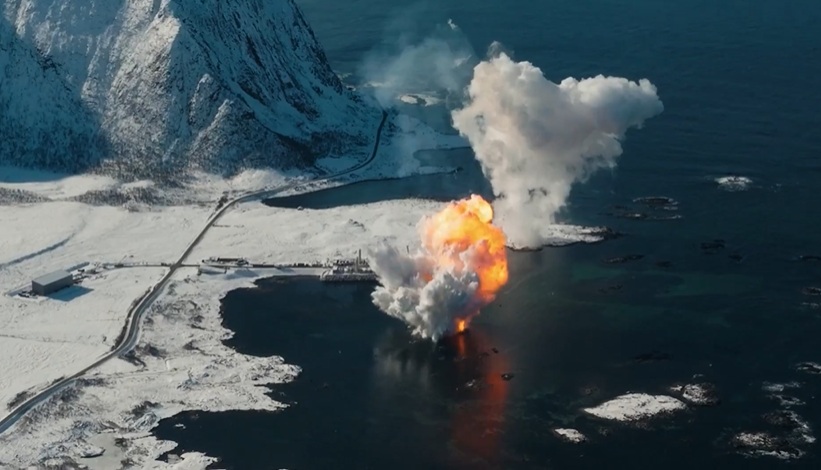Russia’s military and political advances in the Crimean region of Ukraine, following similar fanning of separatism in parts of Georgia in 2008, has re-awakened Cold War fears. A cycle of sanctions against Russia and its retaliation to such action could seriously affect the space industry.
For now it seems likely that economic and diplomatic sanctions will be imposed against Russia, although there is some haggling to be done as to what their severity will be. Some nations are fearful of Russian retaliatory measures, including the possibility that it might cut oil and gas supplies to Western European nations such as Germany. Russia’s retaliatory moves might also include ones that seriously affect international space operations.
Access to the International Space Station is at risk
Russia remains vital to the continued operation of the International Space Station (ISS). The Russian Space Agency, Roscosmos, with its mission control centre in Korolev, near Moscow, controls parts of the space station. Russia’s Soyuz launch vehicles and spacecraft are, at present, the only way of transporting astronaut crews to and from the ISS. This situation has existed since the Space Shuttle was retired, and NASA’s commercial crew transportation replacements will not be ready until 2017 at the earliest.
While it is highly unlikely that Russia will give up its duty of care to the astronauts of other nations – it would not leave them stranded aboard, for instance – Russia may decide to cease offering rides to the station. Under a fixed price contract, NASA currently pays Russia for “seats” aboard its Soyuz rocket-launched Soyuz TMA spacecraft. This is due to run until its planned commercial crew launch systems and spacecraft are ready. If NASA cannot get its astronauts aboard, this would inevitably end operations on the ISS. This action would be at the extreme end of scenarios but it could happen.
For the time being, NASA seems nonchalant about the danger. NASA Administrator Charles Bolden has officially played down the risk noting that the relationship between NASA and Roscosmos’ ISS teams had not yet been seriously affected and that the ISS had ridden out previous crises. “I think people lose track of the fact that we have occupied the International Space Station now for 13 consecutive years uninterrupted, and that has been through multiple international crises,” said Bolden.
US space companies may also suffer from Russian economic retaliation
Other US space operations may also be affected. The Lockheed Martin/Boeing jointly owned firm United Launch Alliance (ULA) and its Atlas V launch vehicles rely on the supply of Russian-built RD-180 rocket engines to power the first stage of the launch vehicle. Without a continued supply of these, the Atlas V will be grounded. In a previous dispute, Russia briefly threatened to end this engine supply and may do so again. While there are US alternatives to the Atlas V (the Delta IV and soon the Falcon 9 Heavy), a sudden reduction in Atlas V’s availability would seriously hinder US launch operations, including the launches of US government and military spacecraft.
Other launch providers that could be affected include the smaller Orbital Sciences. Its Antares launch vehicle uses refurbished Russian-supplied NK-33s (refurbished to the AJ-26 standard by Rocketdyne/Aerojet). While Orbital Sciences is thought to have a stock of NK-33s to last for several more launches, it may need other Ukrainian and Russian-supplied parts whose supply could be disrupted during the crisis.
Russian and Ukrainian space firms could get the blowback
It is not just US-operated rockets that could suffer. Some Ukrainian-built rockets rely on certain Russian parts, while some Russian firms rely on Ukranian-built launch vehicles. Most affected would probably be Sea Launch, which is majority-owned by the Russian RSC Energia firm. It uses Ukrainian-built Zenit 3-SL rockets. Any conflict or crisis between these two nations could, therefore, seriously affect the Sea Launch operation.
Of course, Russia’s space industry could suffer in other ways. Any attempt to block NASA using Soyuz craft to launch their astronauts would end a “nice earner” for Roscosmos and RSC Energia, given that NASA pays about $70 million per astronaut ride. Meanwhile, the Russian state-owned Khrunichev firm gets nearly $1 billion of annual revenue via International Launch Services (ILS) brokered commercial launches for its Proton M/Breeze M launch vehicle. Any ban on such flights would wipe out these mainly foreign supplied revenues.
Bans on spacecraft exports by Russian satellite producers, such as ISS Reshetnev, would have similar financial effects. Any long term restrictions on Russia’s oil and gas sales to foreign nations would have a damaging effect on the finances of both the Russian Government and of Russian gas firms, most noticeably Gazprom, which could have a serious affect on their ability to finance their own satellite fleets.
Comment by David Todd: While negotiations with Russia may buy time, sanctions and retaliatory actions may be part of that process, with damaging effects on the international space industry. However this crisis turns out, those US space experts and politicians who previously warned about the danger of NASA and US space firms relying on space services and hardware from Russia have probably been proven right. As it is, they will now need to think through the consequences of their past decisions and design contingency plans for the future. Longer term, if international space projects like the ISS are to live up to their name, it would be better if they did not rely on any one nation for crucial parts and services.







